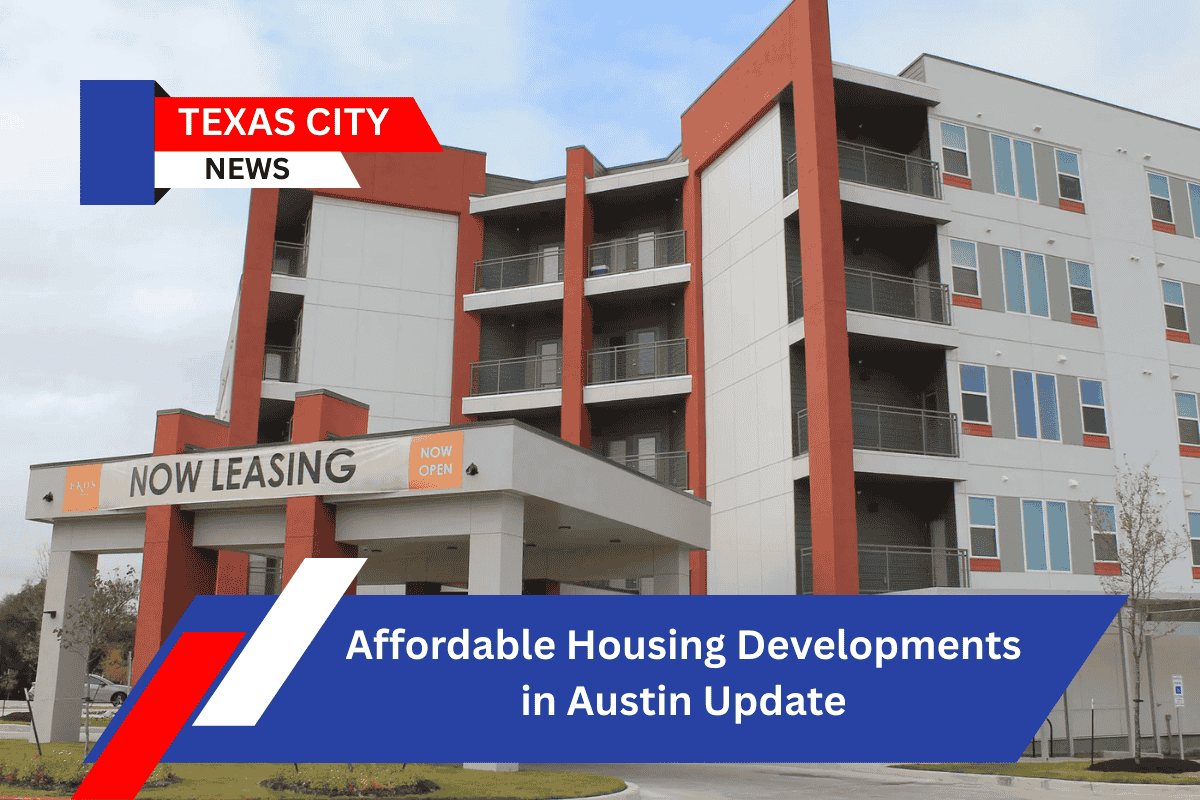Austin is making significant strides in addressing its housing affordability crisis through a variety of innovative and inclusive projects. Here’s an overview of some of the most notable developments as of September 2025:
1. Iris Gardens: A Senior and LGBTQIA2+ Affirming Community
Construction has commenced on Iris Gardens, a 150-unit affordable housing community located at 1013 Montopolis Drive in East Austin. Developed in partnership between Family Eldercare and Vecino Group, this project aims to provide safe and inclusive housing for seniors aged 55 and older.
Approximately 65 units will be designated as permanent supportive housing for individuals exiting homelessness, with a mix of one- and two-bedroom apartments available to households earning between 30% and 60% of the area median income. The development is expected to be completed by late spring 2027.
2. The Markson: Housing for Essential Workers
The Markson, a 330-unit mixed-income community in East Oak Hill, opened in 2024 as part of the Essential Worker Living Program. Over half of the units are reserved for residents earning no more than 80% of Austin’s area median income.
The development offers modern amenities, including a fitness center, coworking lounge, and a skydeck with panoramic views. This initiative aims to provide affordable housing options for teachers, healthcare professionals, and other essential workers near their places of employment.
3. Mueller Affordable Homes Program: 3D-Printed Housing
Austin-based construction tech company ICON is utilizing its Vulcan robotic concrete printers to construct three 650-square-foot, single-bedroom homes priced at $195,000 in the Mueller neighborhood.
These homes are part of a broader initiative to reserve 25% of Mueller’s housing for income-qualified buyers earning under $58,525 annually. The use of 3D printing technology allows for faster and more cost-effective construction methods, potentially revolutionizing affordable housing development.
4. Rosewood Courts Redevelopment: Preserving History
Rosewood Courts, the first public housing project for African Americans in the United States, is undergoing a significant redevelopment. The Pathways at Rosewood Courts project includes the construction of new multifamily units, with the first phase expected to be completed in the second half of 2025.
Additionally, homeownership townhomes are being developed in partnership with Austin Habitat for Humanity. The redevelopment aims to preserve the historical significance of the site while providing modern, affordable housing options.
5. Community First! Village: A Model for Homelessness Solutions
Community First! Village, a 27-acre tiny home community in northeast Travis County, offers affordable housing with rents starting at just $220 per month. The village currently houses over 370 residents and plans to expand to accommodate more than 500.
Designed to foster a strong sense of community, the village includes shared spaces such as green areas, kitchens, and laundry facilities, along with amenities like a cinema, amphitheater, dog park, and an on-site health clinic. The initiative serves as a model for addressing homelessness through community-focused affordable housing.
6. Strategic Housing Blueprint: Progress and Challenges
Austin’s Strategic Housing Blueprint, adopted in 2017, set a goal to create 60,000 affordable housing units by 2028. As of 2023, the city had added over 22,000 affordable units, but progress has been uneven across different income levels and geographic areas.
Efforts are underway to update the blueprint to better align with current challenges and priorities in affordable housing.
7. Future Communities: Expanding Affordable Housing Options
Foundation Communities is leading one of the largest affordable housing expansions in Austin’s history. Current projects include Juniper Creek Apartments (110 units), Norman Commons Apartments (156 units), and Burleson Studios (104 units), with openings scheduled between 2025 and 2026.
These developments aim to provide affordable housing options with access to supportive services such as learning centers, food pantries, and case management.
8. Policy Initiatives: Addressing Affordability Gaps
The City of Austin is considering policy shifts to address affordability gaps, particularly for households earning below 30% of the area median income. Proposed changes include enhancing density bonus programs, recalibrating income thresholds, and standardizing affordability periods across project types.
These initiatives aim to increase the production of deeply affordable housing units and ensure a more equitable distribution of income-restricted housing across all council districts.
SOURCES
- (https://www.tdhca.texas.gov/news/tdhca-welcomes-new-affordable-housing-development-austin)
- (https://www.kut.org/housing/2025-02-18/austin-tx-affordable-housing-construction-study)
- (https://www.austintexas.gov/news/city-austin-and-austin-habitat-humanity-create-affordable-housing-communities-together)
